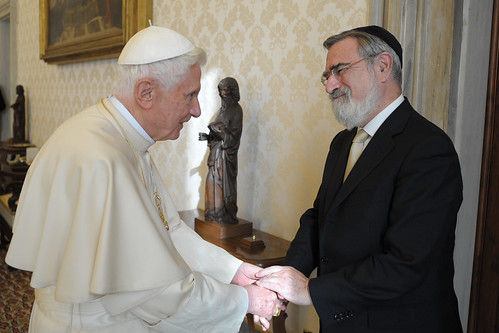19th December 2012
Remembering the Holocaust

70 years ago, Europe was the scenario for an unprecedented and horrific experiment: the systematic effort to exterminate an entire race.
On 17 December, Foreign Secretary William Hague marked the 70th anniversary of a declaration by the Allies denouncing the barbarous and inhumane treatment of Jews in Nazi-occupied Europe – “the bestial policy of cold-blooded extermination” – with a message on behalf of the British Government.
A week after that 17 December 1942 declaration, on Christmas Eve, Pope Pius XII – from the Vatican, unoccupied and independent, but surrounded by the territories of Axis-controlled Europe – gave a lengthy radio broadcast focusing on war, peace and human rights.
In that broadcast, he said: “Humanity owes this vow to those hundreds of thousands who, without any fault on their part, sometimes only because of their nationality or race, have been consigned to death or to gradual extinction”.
The Shoah must not be forgotten. In 1998, Pope John Paul II called for “memory to play its necessary part in shaping a future in which the unspeakable iniquity of the Shoah will never again be possible”. One of the most effective international instruments for remembrance is the Task Force for International Cooperation on Holocaust Education, Remembrance and Research (ITF).
As the Foreign Secretary noted in his statement, the United Kingdom is preparing actively to assume the chairmanship of the ITF in 2014/15. We look forward to working in that role with all those who recognise the need to remember, including the Holy See.